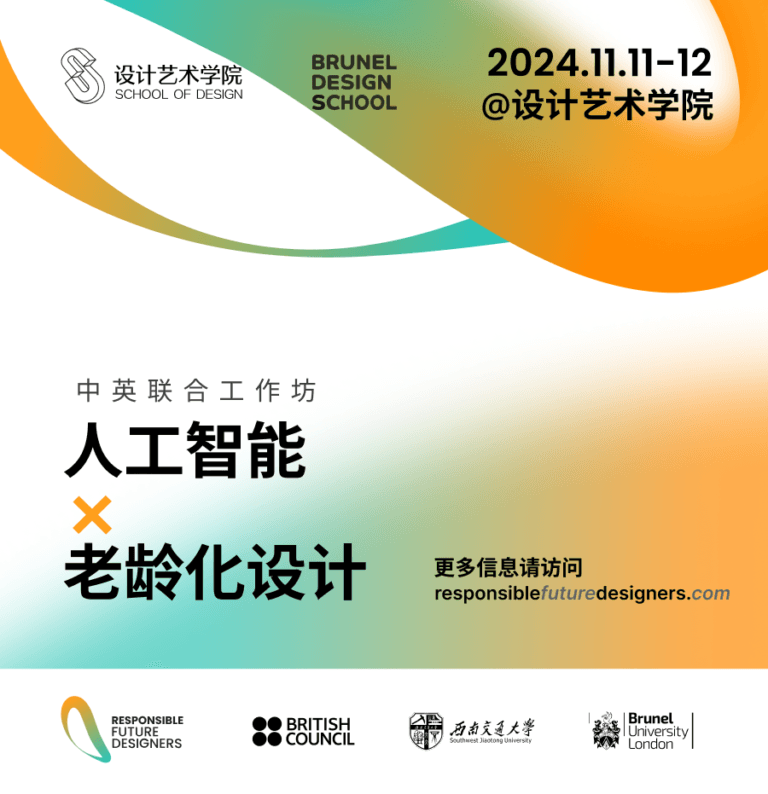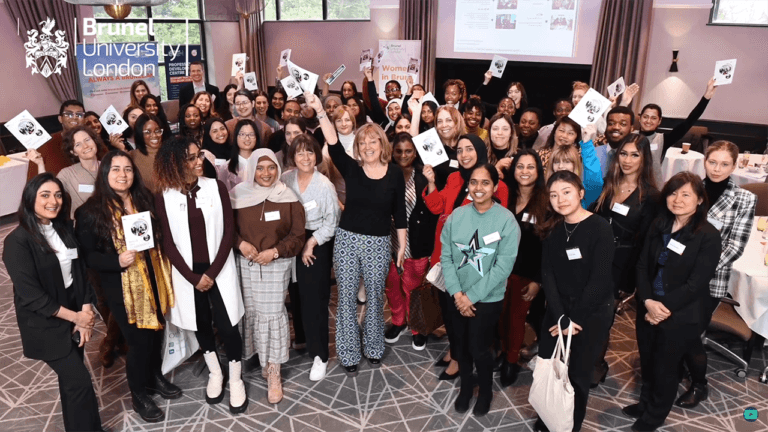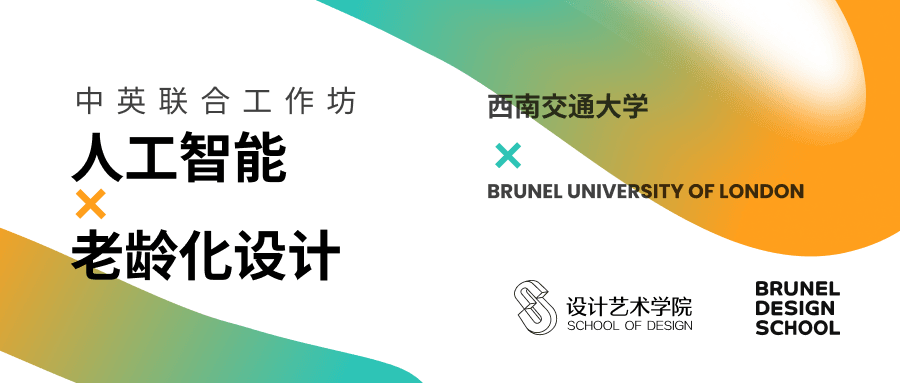
To explore how AI can assist in designing age-friendly, inclusive products, we organised a workshop focused on empowering designers to create innovative solutions for the ageing population. The workshop was host in person at the School of Design, Southwest Jiaotong University, co-led by Dr. Weining Ning from Brunel University London and Associate Professor Yongmeng Wu from Southwest Jiaotong University. More than 90 students from various disciplines and programmes participated in the 2-day workshop.
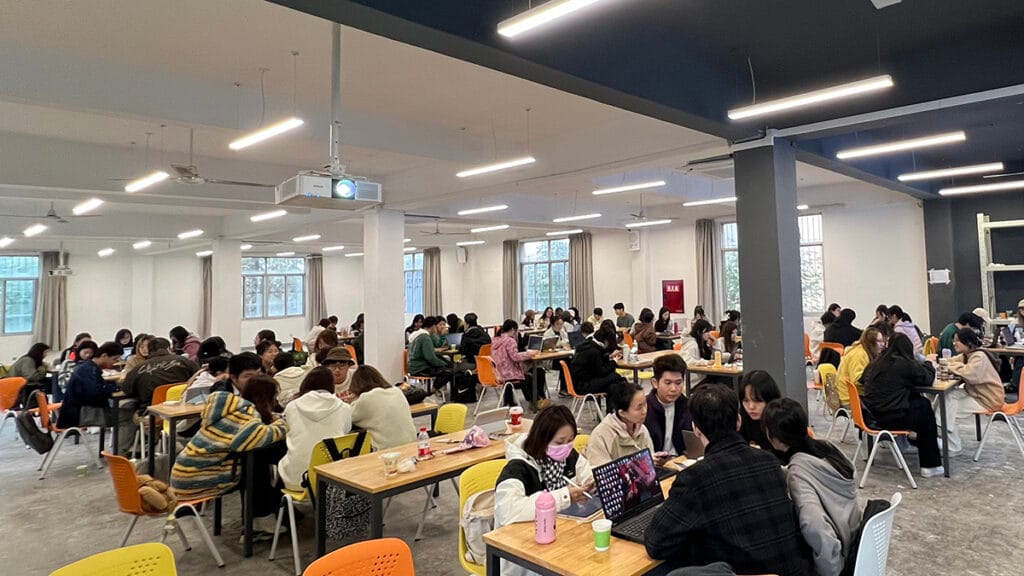
Invited talks: insights into AI and Ageing Design
The workshop commenced with three talks to deepen participants’ understanding of ageing design and inspire creative project ideas.
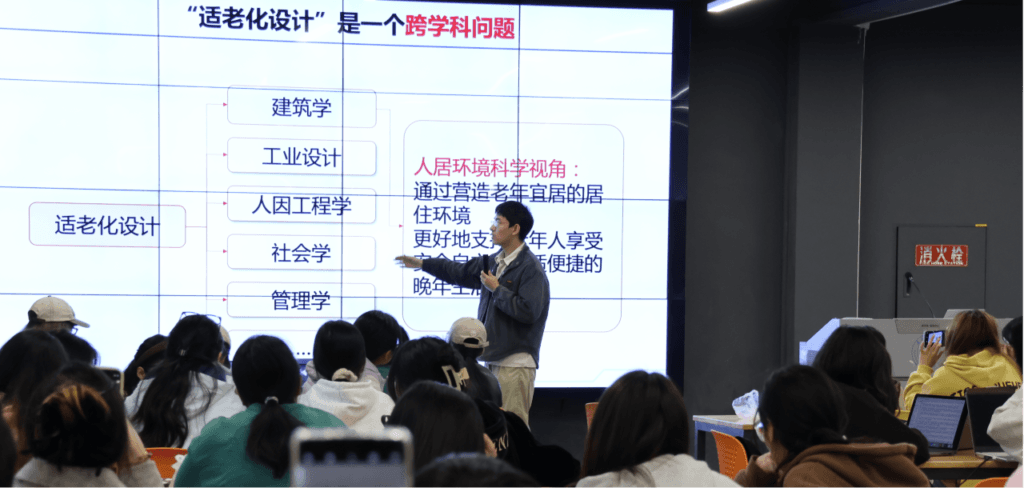
Associate Professor Chunyu Wang from Chongqing University delivered a lecture titled “Ageing-Friendly Housing Components and Furniture: Common Pitfalls and Design Strategies.” He explored the theoretical framework and practical applications of ageing-friendly design, highlighting common misconceptions in practise. Professor Wang emphasised the importance of addressing the genuine needs of the elderly rather than focusing solely on aesthetics. He also introduced scientific, research-driven design methods, explaining principles for applying ageing-friendly design in home products.
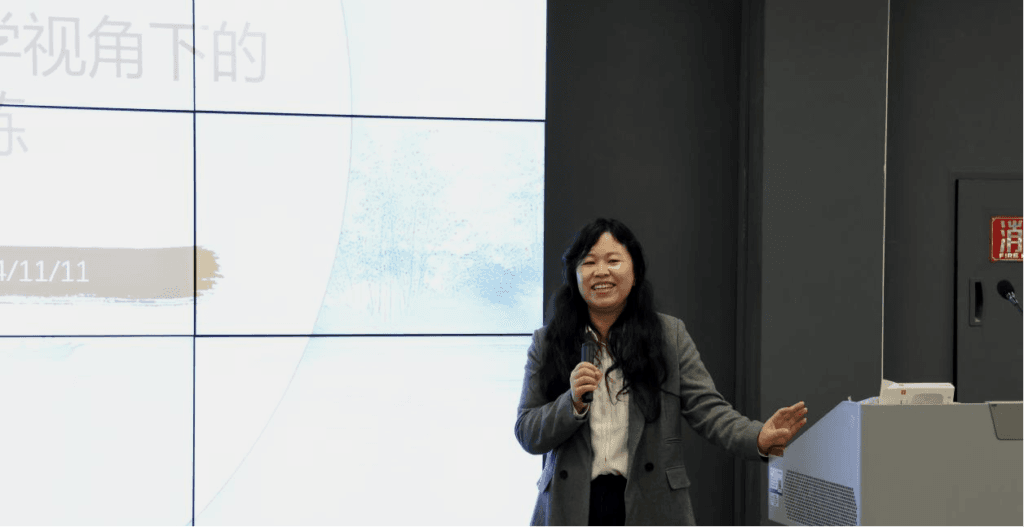
Associate Professor Guo Feng from Southwest Jiaotong University’s Psychology Research Center presented “AI and Ageing Workshop: Cognitive and Emotional Training from a Psychological Perspective.” She discussed the role of empathy in ageing design, urging designers to think from the user’s perspective to meet specific needs. Her talk covered key topics such as user-centered design, reducing cognitive load, and enhancing emotional engagement through sound design. She also addressed critical challenges like combating cognitive decline and loneliness through thoughtful design.
Dr. Weining Ning from Brunel University London Design School provided an overview of the workshop’s background and discussed the opportunities and challenges of ageing design in the context of AI. He emphasised the ethical considerations that designers must address when utilizing AI in ageing-related design projects.
The 2-day design sprint
During the workshop, students formed teams to address various scenarios and needs of older adults, followed a structured approach of “Discover-Define-Develop-Deliver” to identify design challenges, generate creative ideas, and produce initial design solutions. Over two days of intense collaboration, each team developed comprehensive conceptual designs and presented their outcomes.
Awards and winners
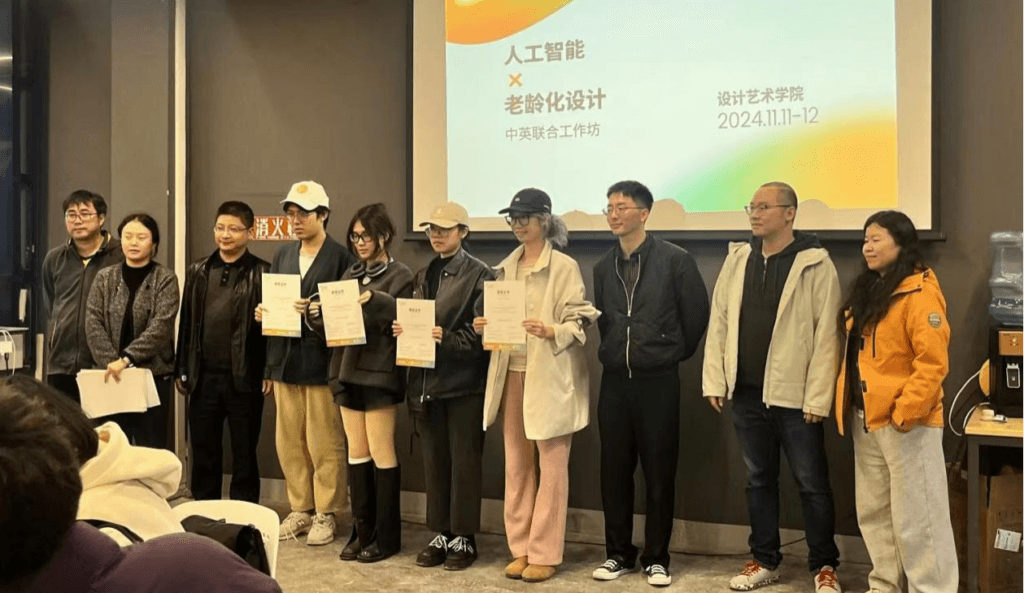
The student projects demonstrated innovative thinking and creative solutions, spanning areas such as smart home systems, assistive living devices, and social interaction platforms. Five pieces of excellent design were selected by an expert review panel composed of faculty members from Brunel University London and Southwest Jiaotong University. Mr Ning Dai from the School of Design at Southwest Jiaotong University announced the winning teams and presented the awards.





Best Design Award
Project: Intergenerational Communication Design for Migratory Families
Designers: Lin Wenjie, Cheng Shiyao, Liu Yuxuan
This project focuses on improving intergenerational communication between elderly members of migratory families and young people. It effectively alleviates loneliness for the elderly while stimulating children’s imagination and engagement. The design excels in creativity, feasibility, and commercial potential.
Best Market Potential Award
Project: Smart Shield
Designers: Wu Tiannan, Chen Xibing, Ma Xuan, Ye Wen, Zhao Yidan
Smart Shield protects elderly people from financial scams, particularly those involving AI technologies. Its robust implementation plan and technical feasibility demonstrate significant market potential.
Best Social Impact Award
Project: Dream Seeker
Designers: Fan Yiping, Zhu Yankun, Zhang Tairan, Zhou Chengwei, Wang Cao
Dream Seeker combines AI-generated imagery with memory recreation and emotional support to address end-of-life care for the elderly. It highlights the humanitarian value of design.
Best Visual Design Award
Project: Healing Through Plants
Designers: Jiang Yulin, Hu Geqi, Liu Renjie, Kang Zijing
This planting app is tailored for elderly gardening enthusiasts with emotional disorders, providing companionship and reducing loneliness during retirement. Its outstanding visual and functional design leaves a lasting impression.
Best Creativity Award
Project: Emoji Translator
Team Members: Nie Yuhe, Li Chenqiao, He Ziqing, Zhang Wuyou
This project addresses the gap in social media use by elderly users, particularly in understanding emojis and memes commonly used by younger generations. It fosters effective intergenerational communication, enhancing quality of life with its innovative and empathetic approach.
This workshop marks a significant step in exploring the intersection of AI and ageing design, fostering interdisciplinary collaboration and inspiring future innovations. Stay tuned for more updates and events from the Responsible Future Designers project!


